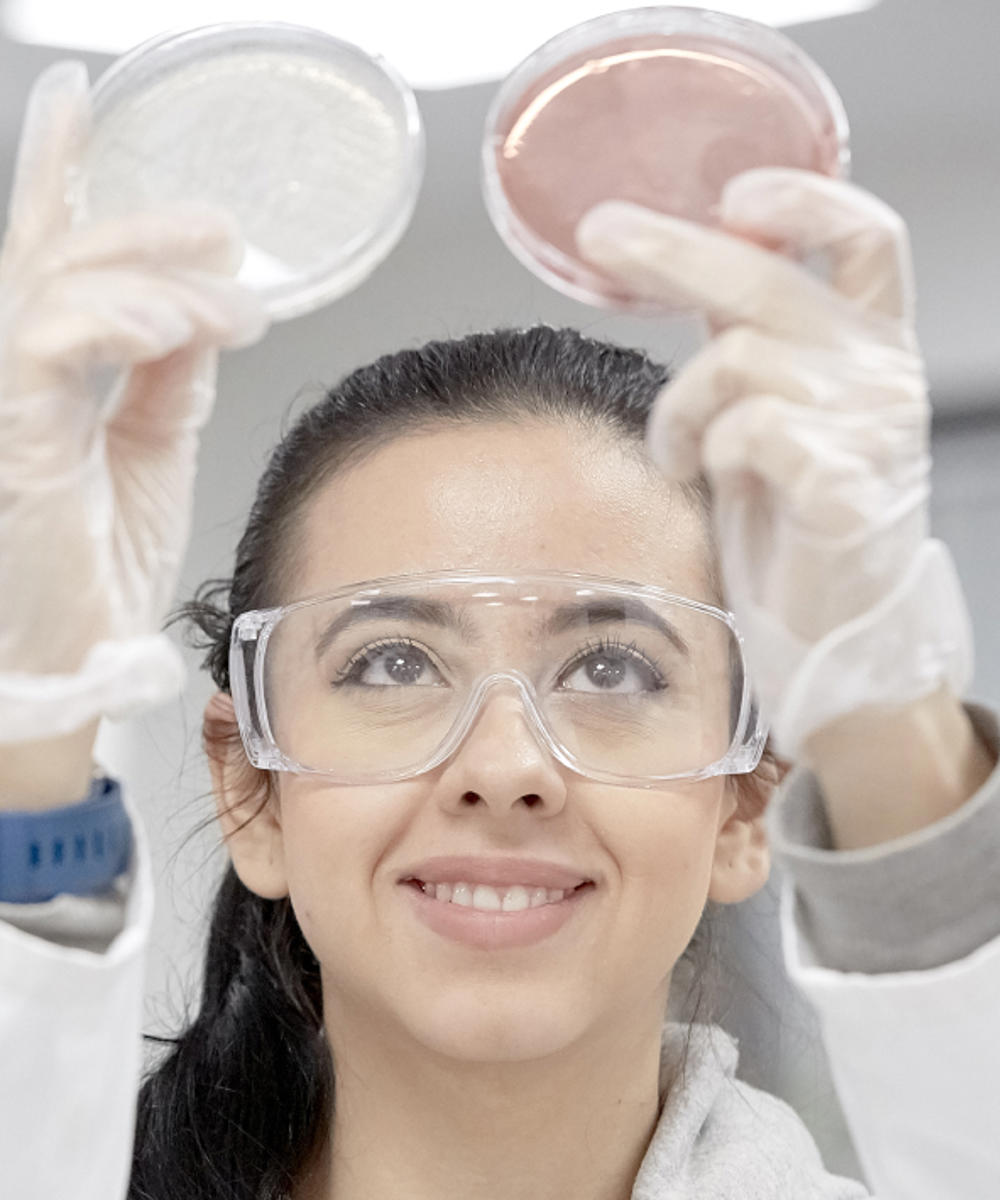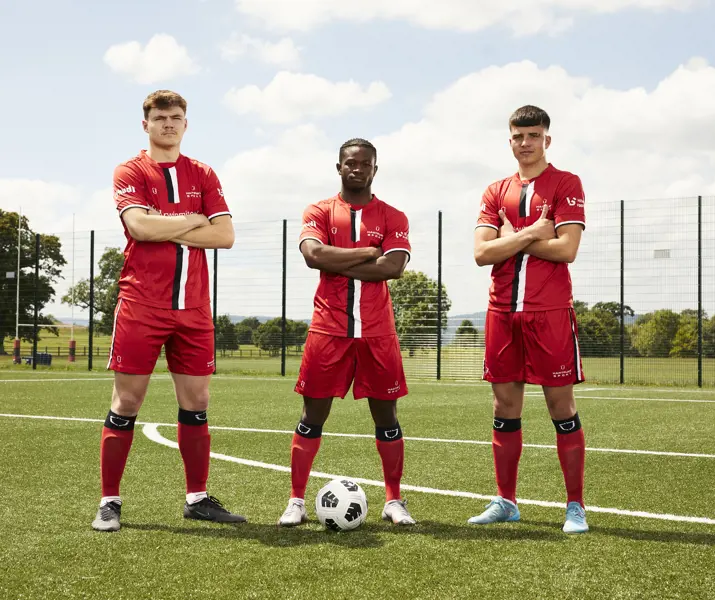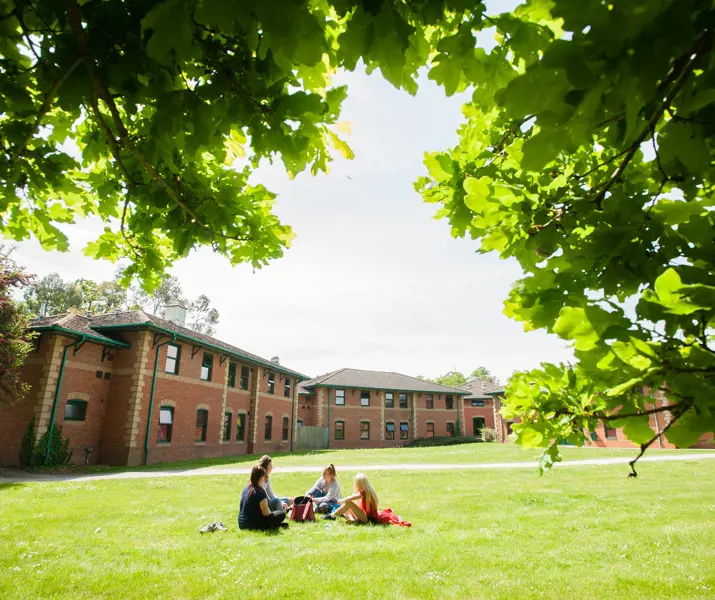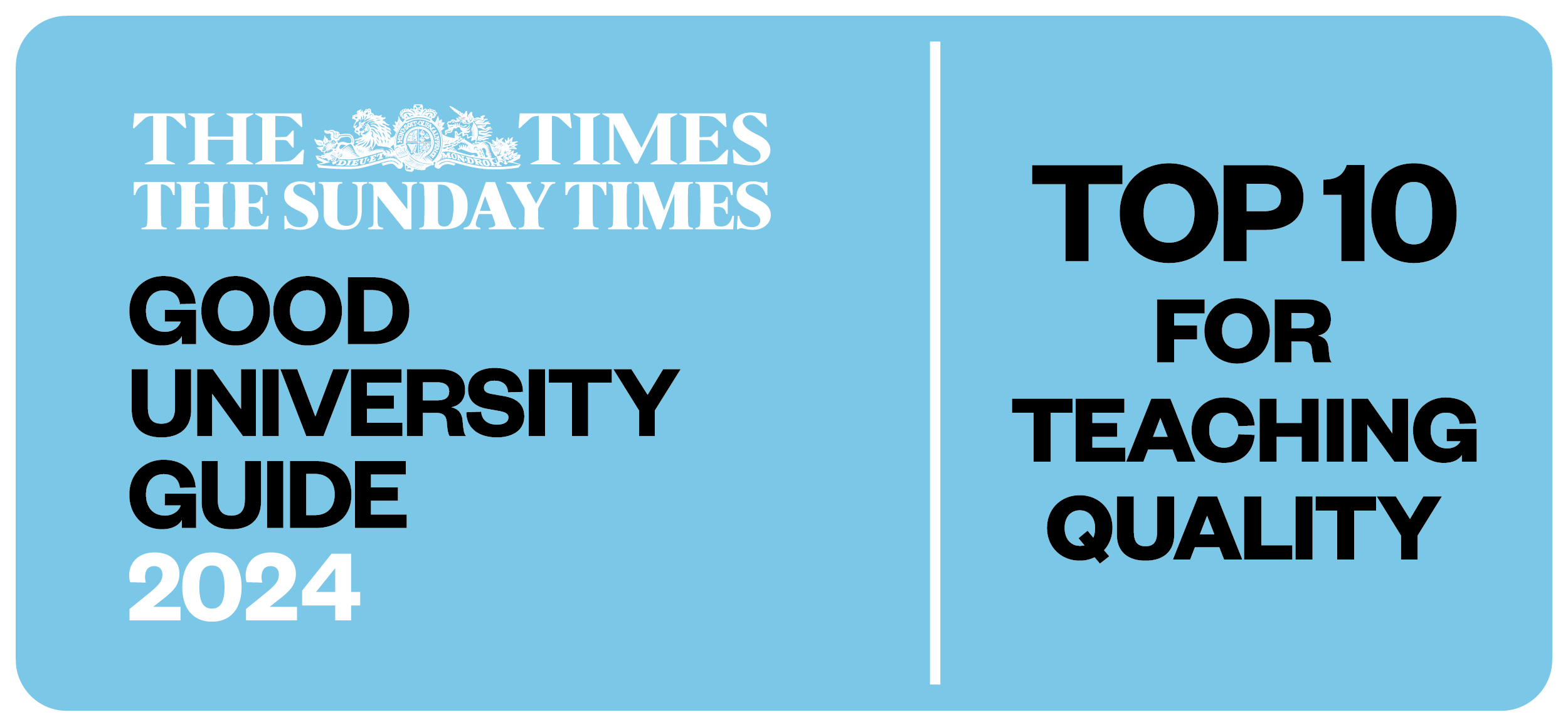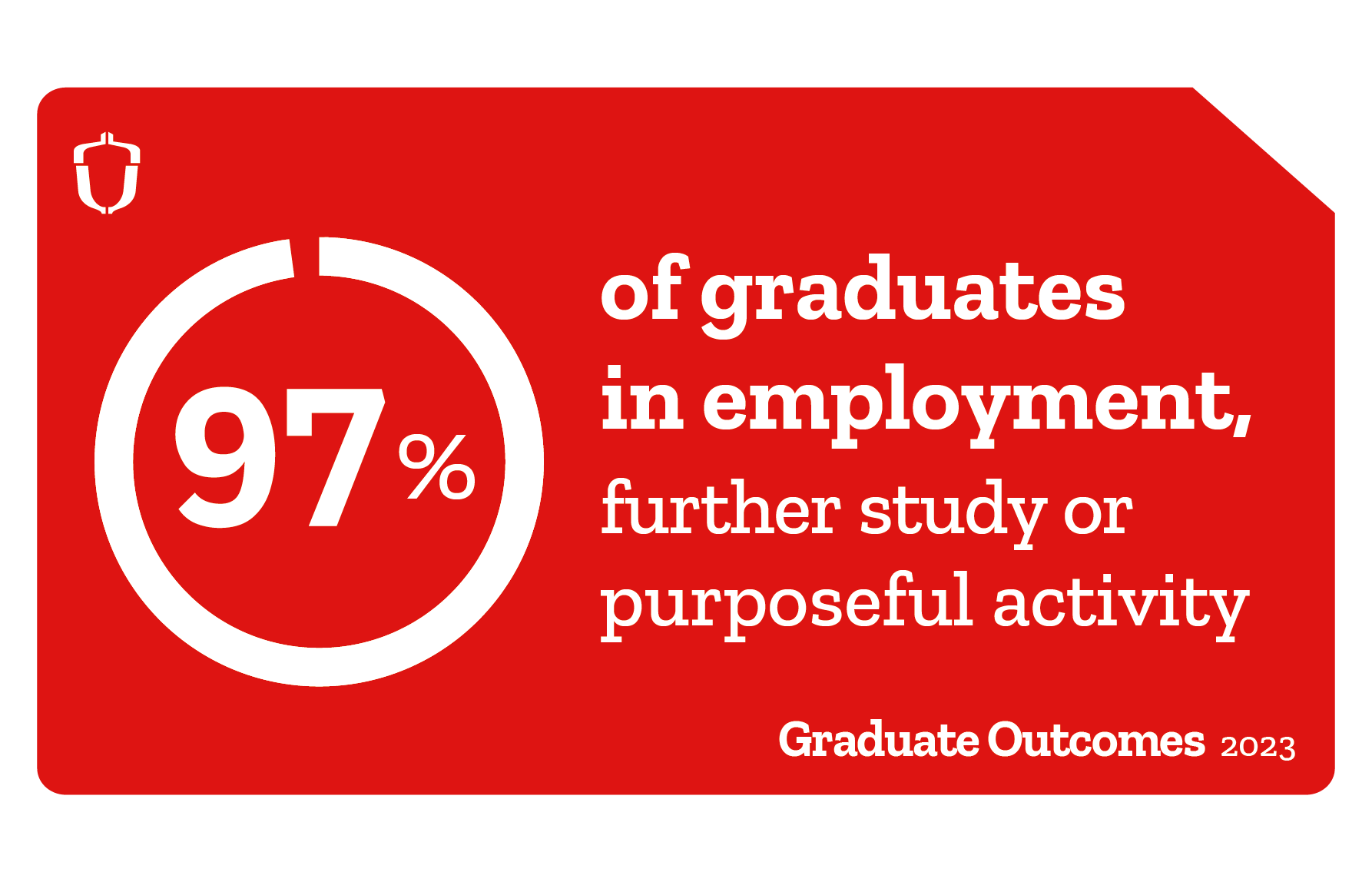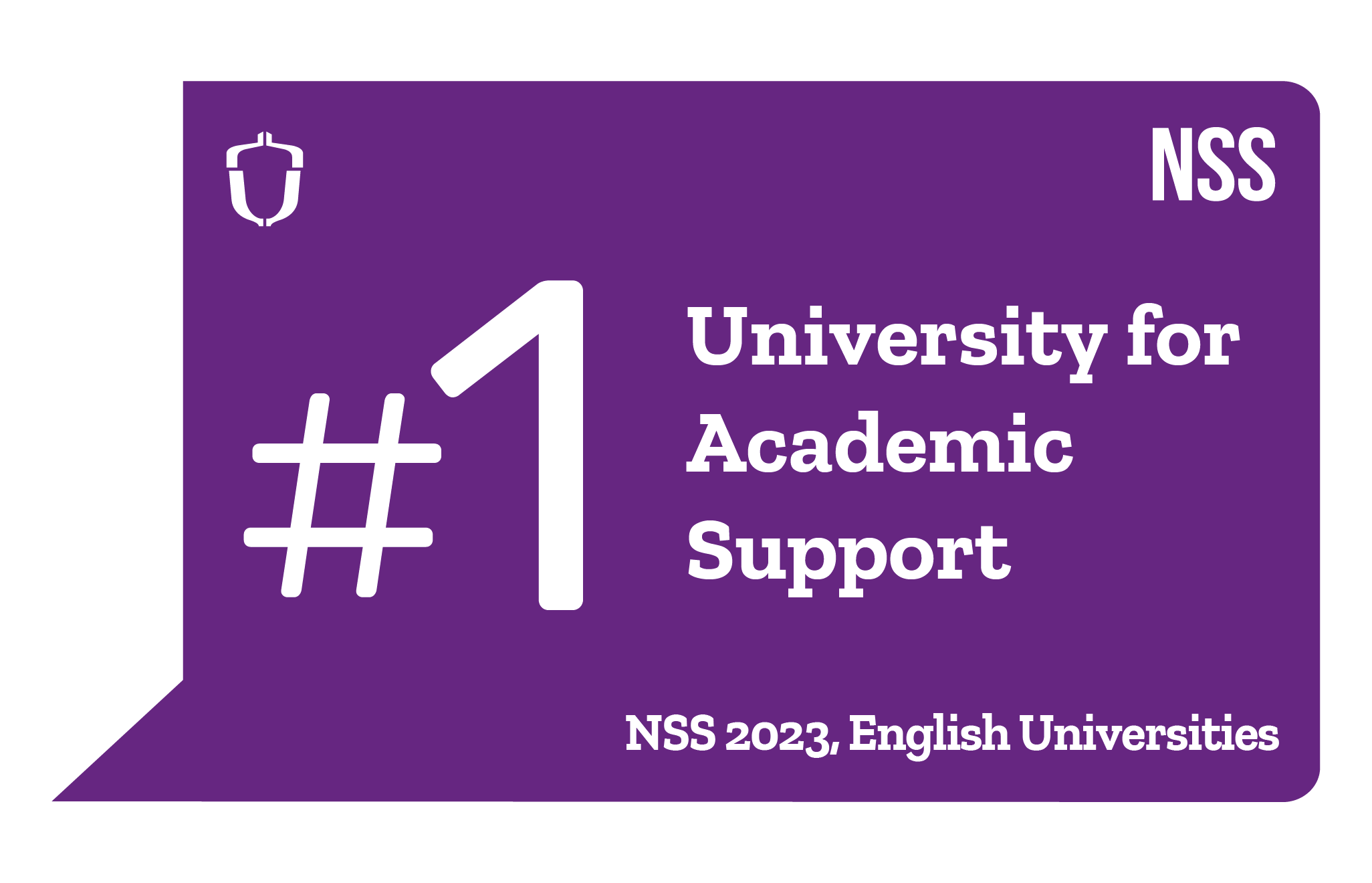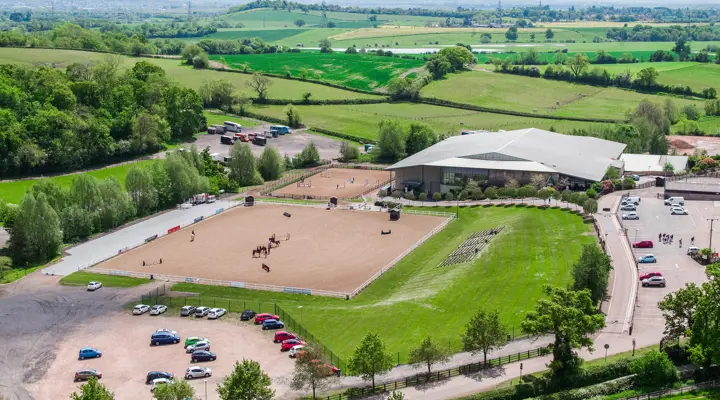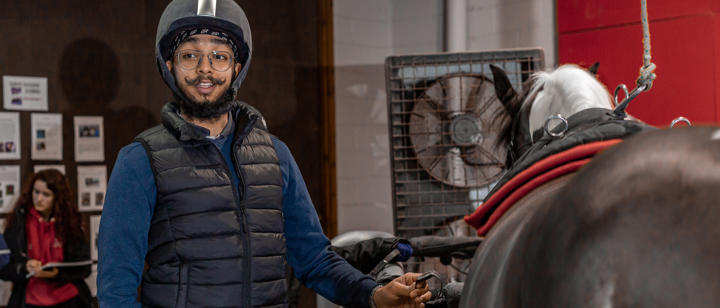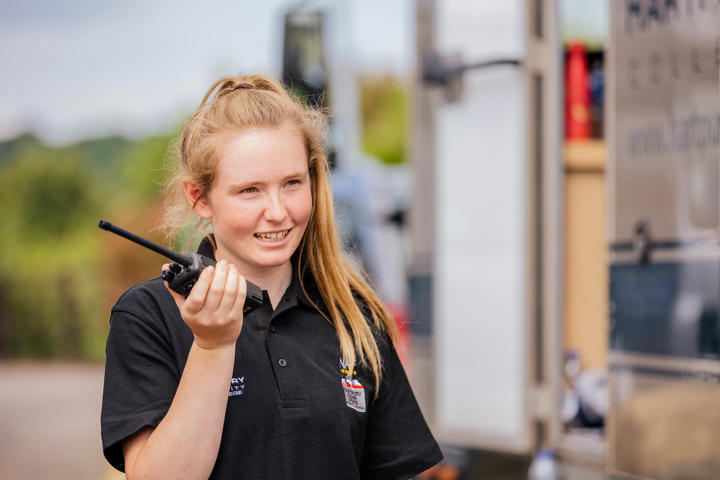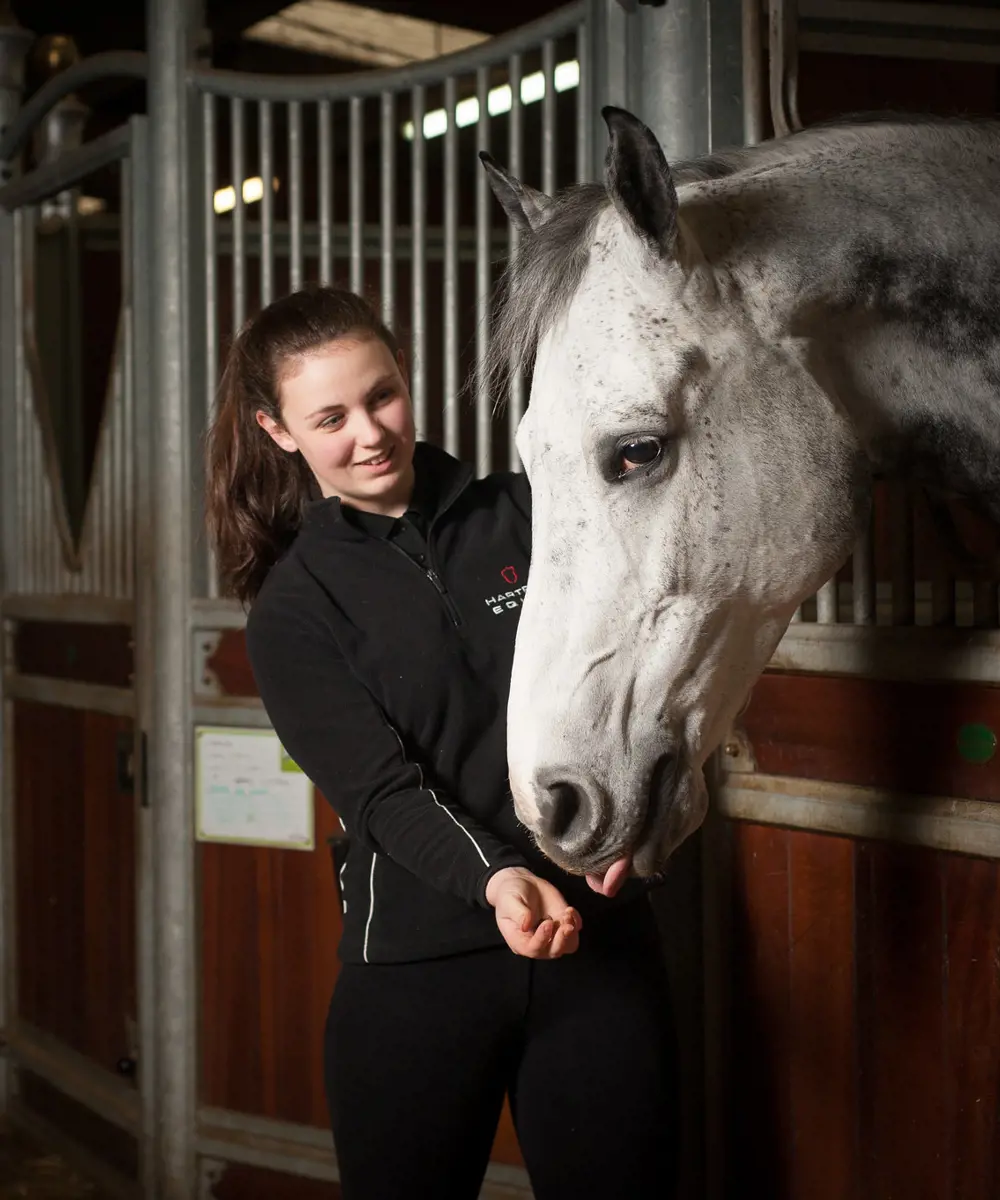Throughout the course, you can expect to gain a thorough understanding of how the horse functions and the impact of exercise. After your first year, you’ll be able to tailor your studies with optional modules. You'll study topics such as nutrition, health and disease and breeding, with the option to delve deeper into biomechanics, therapy and rehabilitation, and behaviour as well.
Your first two years will follow the standard BSc route. You’ll then begin integrating master’s level modules into your learning. Your final MSci year will be dedicated to master’s-level study only, culminating in undertaking two research projects focusing on a topic of your choice.
All you need is a passion for horses and the drive to develop knowledge through research within the equine industry.
-
UCAS | A typical offer for this course is 128 UCAS tariff points or equivalent.
-
GCSE | A minimum of 5 GCSE A* to C, (or 9 to 4 where numeric grades are being awarded) or equivalent, to include English Language, Mathematics and a Science.
-
A-level | Typical offer is ABB or equivalent. This must include a minimum of two A-levels including one in a Science subject such as Biology, Physics, or Chemistry at D or above.
-
Vocational Award | Typical offer is a DDM in an Extended Diploma in a relevant subject.
-
Access | Typical offer is 128 UCAS tariff points in an Access to Higher Education Diploma to include a minimum of a pass in a Science subject such as Biology, Physics, or Chemistry module at Level 3.
-
IB | Typical offer is 128 UCAS tariff points in an IB Diploma, to include a minimum of two Highers at H3 or above, including one in a Science subject such as Biology, Physics, or Chemistry at D or above.
This must also include Maths and English Language at a minimum of Standard Level S3 if equivalent GCSEs have not been obtained.
-
Scottish Highers | Typical offer is 128 UCAS tariff points in Scottish Highers. This must include a minimum of one Advanced Higher and one Higher, to include one in a Science subject such as Biology, Physics, or Chemistry at D or above.
-
Irish Leaving Certificate | Typical offer is 128 UCAS tariff points in the Irish Leaving Certificate. This must include a minimum of two Highers, including one in a Science subject such as Biology, Physics, or Chemistry at D or above. This must also include Maths and English Language at a minimum of Ordinary Level.
-
OCR Cambridge Technical | Typical offer is a DMM in a Cambridge Technical Extended Diploma in a relevant subject.
-
T Level | Typical offer is Distinction in you T Level overall grade in a relevant subject.
We welcome students with equivalent qualifications. Contact the admissions team to discuss further.
We may interview mature applicants and those with non-traditional qualifications to ensure this is the right course for you.
Previous learning towards a university-level qualification or relevant work experience may count as credit for this course.
Please contact us for further information.
Email us
Your support network
You'll benefit from a strong support network from day one to be the best you can be. This will range from your personal tutor and specialist academic support team (our Achievement and Success Centre) to dedicated wellbeing and employability (Innovation, Careers and Enterprise) centres.
Academic support
You’ll have your own personal tutor while you’re here who will support you to succeed in your studies. You’ll also have access to our academic and wellbeing support teams who run regular workshops and one-to-one sessions on campus and online.
Alongside this, we have a comprehensive bank of online study skills resources to help you make the most of your qualification.
Your learning experiences
You'll experience a range of teaching methods to strengthen your digestion of topics, including lectures, workshops and practical sessions, as well as supported work placement learning as part of many courses.
Your career
Each year of your course will be made up of two semesters, within which you’ll study compulsory and optional modules on different industry-focused topics, enabling you to develop your own unique portfolio of knowledge, skills and experience, ready for your career. The course is taught in English.

